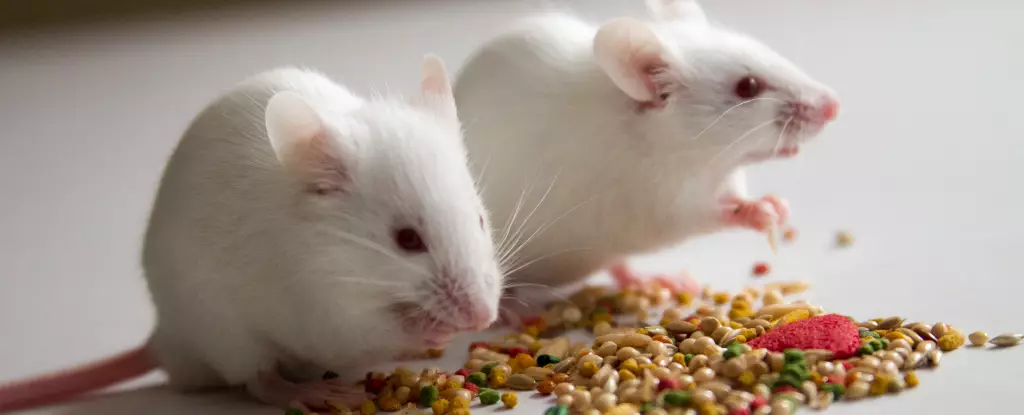Current scientific discourse often points to caloric restriction as a promising strategy for enhancing lifespan. A recent exploratory study conducted in the United States involving nearly 1,000 mice has reignited interest in this area. The study dives into the metabolic changes and reductions in body mass associated with restricted food intake, while also highlighting potential trade-offs in health. This conversation is not new; research spanning various species, from monkeys to fruit flies, has consistently illustrated that a decrease in caloric intake could promote increased longevity. However, there remains skepticism around the applicability of these findings to human health, primarily due to ethical concerns surrounding clinical interventions.
Long-standing observational studies suggest that dietary regimens featuring moderate caloric restrictions—such as intermittent fasting—can lead to notable health benefits, potentially reducing the risk of premature death. Nevertheless, the results are often equivocal. Factors like small sample sizes and limited duration render it difficult to conclusively establish causality between dietary habits and longevity. The latest findings regarding mice reveal that those on a stringent caloric diet demonstrated a significant weight reduction compared to their counterparts on standard diets, experiencing around a 25% loss by their 18-month mark. Furthermore, these dietary-restricted mice enjoyed longevity, living an average of nine months longer than those with unrestricted access to food.
While averages suggest favorable outcomes, details reveal a more intricate narrative. The study indicates that variations in lifespan among the calorie-restricted mice were substantial; some lived much longer than others. Alarmingly, an interesting trend emerged: mice that maintained greater body weight within the calorie-restricted groups tended to live longer. This counterintuitive finding challenges the simplistic notion that lower food intake directly equates to longer lifespans. Instead, genetic factors appeared as a more significant determinant of longevity, overshadowing the influence of caloric intake alone.
Additionally, the relationship between weight management and resilience emerged as a crucial point of discussion. Mice that exhibited better handling of stress and bore higher counts of infection-fighting white blood cells displayed enhanced potential for a longer life. This suggests that a robust biological framework—characterized by both physical health and resilience—can be more impactful than mere caloric restrictions.
Understanding the genetic underpinnings that govern lifespan remains essential in examining the findings. Genetic predispositions seem to dominate over caloric restriction in determining who benefits most from limited food intake. Mice in the study that coped better with stress and exhibited healthier blood parameters had improved survival rates; this metric highlights the complexity of what influences longevity. While caloric restriction strategies aim to mitigate health risks, they may not universally apply across all individuals due to inherent genetic variability.
This revelation invites a more nuanced contemplation of weight loss and general health, urging us to understand that diet alone may not be the silver bullet for longevity. Rather, harnessing the interplay of genetic predispositions, lifestyle, and diet could yield a more holistic approach to health and lifespan.
As we continue to sift through findings from various studies on caloric restriction, it is crucial to remember that while dietary habits play a role in health, they form part of a tapestry of factors critical to increasing lifespan. Understanding that individual genetics and resilience may play a pivotal role can reshape how we perceive diet and longevity. Therefore, while practicing caloric restrictions may offer benefits, especially regarding metabolic health, its application should harmonize with an appreciation for genetics and overall well-being.
Ultimately, embracing a comprehensive view of health can pave the way not only for longer lives but for fulfilling, healthier ones. Instead of fixating solely on caloric intake, we should focus on enhancing our health at all stages of life, ensuring that our years are not only extended but also enriched with vitality.


Leave a Reply